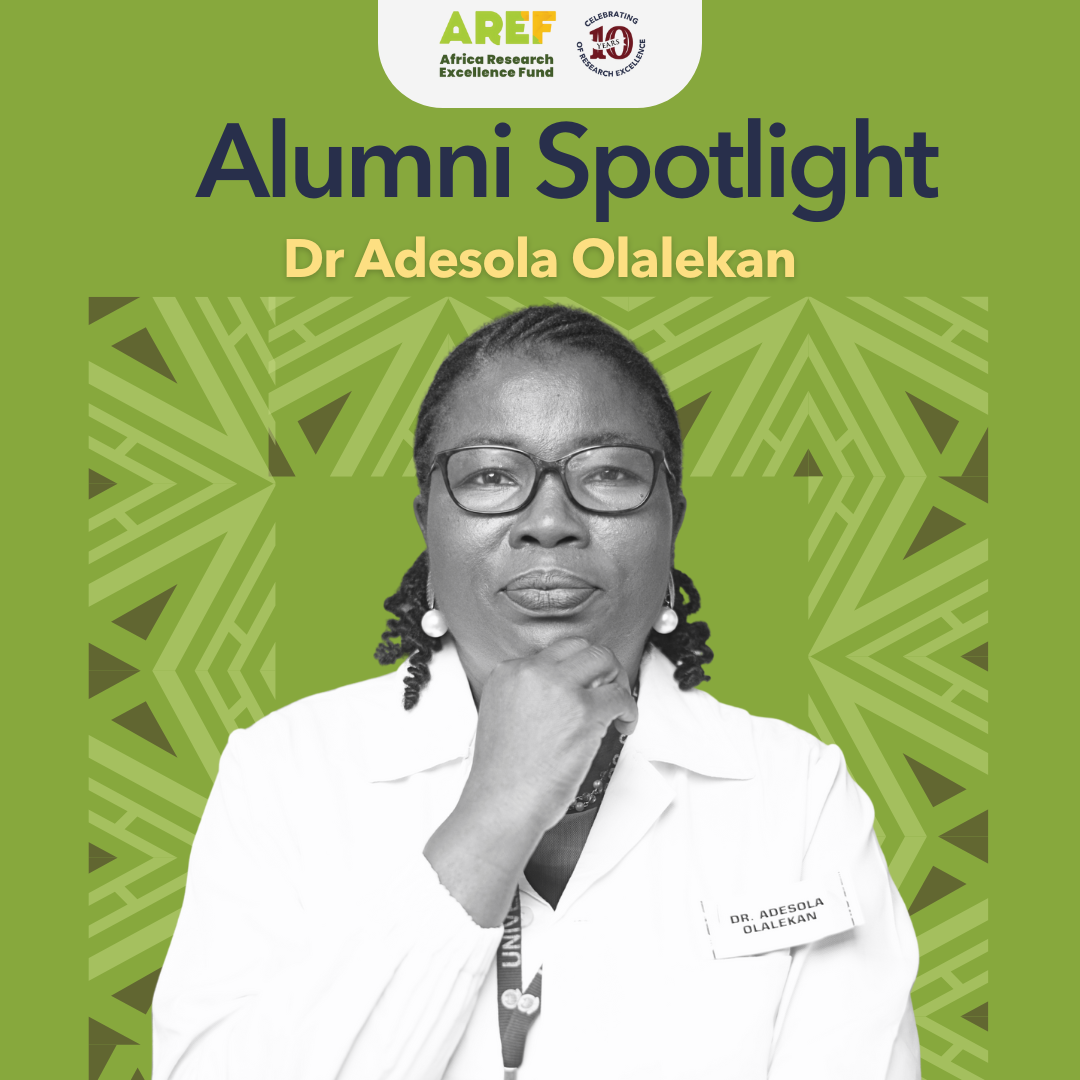Tracking the Silent Pandemic: Dr. Adesola Olalekan’s Journey Against Antimicrobial Resistance, Powered by AREF
The fight against Antimicrobial Resistance (AMR)—a “silent pandemic”—is a global imperative. Dr. Adesola Olalekan and her team are on the front lines, working to understand why common antibiotics are failing, forcing patients to stay longer in the hospital, and driving up healthcare costs worldwide.
The Global Crisis and Local Research
AMR arises when bacteria, viruses, and other pathogens evolve to resist the medications designed to kill them. The World Health Organization (WHO) estimates that bacterial AMR was directly responsible for 1.27 million global deaths in 2019. Without action, the annual death toll could reach 10 million globally by 2050.
Dr. Olalekan’s research focuses on uncovering the mechanism of resistance in pathogens isolated from her local population in Lagos and other state inNigeria. By understanding the molecular landscape of these pathogen causing infections, her team can advise on crucial strategies.
AREF: The Catalyst for Career Progression
Dr. Olalekan credits the Africa Research Excellence Fund (AREF) for providing the critical support that built foundational capacity for AMR research and accelerated her career.
Her journey began with the Research Development Fellowship (RDF), which provided nine months of training at the University of Leeds. There, she gained hands-on expertise in using the cutting-edge MinION by Oxford nanopore technology for whole genome sequencing and subsequent bioinformatics analysis. This transformative skill set enabled her to generate and analyze genomic data independently, a major step in her career.
Following the fellowship, Dr. Olalekan won an AREF seed grant. This funding was instrumental in establishing a genomic research laboratory at her university. This facility now enables end-to-end bacterial genome sequencing, from isolation to analysis, serving as a vital hub for molecular research in the region.
Furthermore, AREF’s training in grant writing enhanced her collaborative skills, leading to her successful involvement as a co-investigator on three major research projects, with her newly established lab running the crucial molecular aspects of these studies. Her participation in the Women in Leadership Program continues to develop her capabilities as a Principal Investigator and team lead.
She was also paired with a seasoned mentor, the Director-General of the Noguchi Institute in Ghana, who remains an influential guide. The supportive peer-to-peer network of AREF alumni allows her to collaborate, share manuscripts, and gain constructive feedback from colleagues across the continent.
A Global Discovery and Policy Influence
Through her AREF-sponsored work on Methicillin-resistant Staphylococcus aureus (MRSA), Dr. Olalekan made a critical discovery: finding MRSA strains in Nigeria that were predominantly isolated from other continents. This finding unequivocally demonstrates that infection transmission does not respect borders, reinforcing the need for global collaboration, including strengthened biosurveillance and improved infection control.
Crucially, the skill and expertise she acquired positioned her to be part of the team that wrote the national Genomics Sequencing Policy for Nigeria, which was officially launched in January this year. This signifies her direct influence on national scientific strategy, moving her research from the lab bench to the policy table.
Today, Dr. Olalekan is the Principal Investigator of a dedicated research team focused on the One Health concept, studying AMR pathogens from humans, animals, and the environment. She now advocates for AREF to establish international consortia among its alumni to tackle complex health issues continent-wide, believing this collaborative model will be most impactful for Africa’s future.


